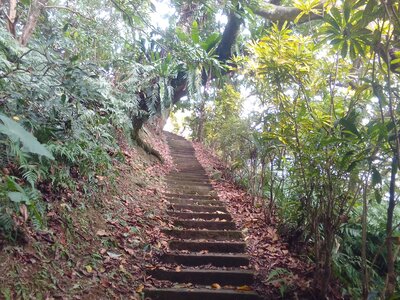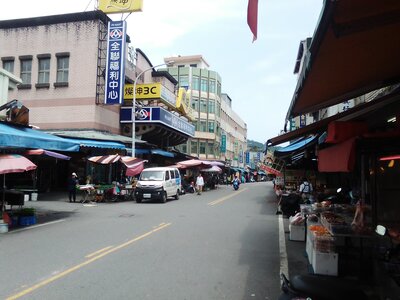ok i see the link is not fully working with the translator. so here is the translated text of the article:
Lust for life, desire for advancement, love of cars: anyone who visits the South Korean metropolis of Busan is offered a contrast to crisis-ridden and increasingly dysfunctional Germany. In several respects, the Koreans are pursuing approaches that would horrify the German Greens.
A Maybach is parked cheekily on the sidewalk in front of a café on the corner of Haeun-Daero and Gunam-ro in the middle of busy evening Busan, South Korea's second largest city with 3.3 million inhabitants. That's noticeable.
Firstly, because a Maybach stands out, even in Busan, although Maybachs are often seen on the streets there, as are a noticeable number of Maserati, Ferrari, BMW, Mercedes and Porsche cars. But parking illegally? Even cheekily on the sidewalk?
However, a police car is already rolling up. The siren wails briefly. An announcement follows from the loudspeaker. In the café garden, a young man jumps up, wiry figure, black light summer trousers, black T-shirt. His two friends at the table laugh loudly. The man sprints to his Maybach. As he sprints past the police car, he bows briefly towards the police officers. He gets in and drives away.
Busan is a boom town unlike any other in Germany. Until the 1960s, South Korea was a desperately poor developing country. Its rise began when it was inspired by the German economic miracle industry and applied it to its own system. It received no development aid from the West. Today it is almost on a par with Germany, has the best mobile phone network in the world and still wants to go further up.
A building complex consisting of three skyscrapers has just been completed next to the beach and fishing port. The towers mainly house apartments, up to the 94th floor. They offer a clear view of the Sea of Japan, which is called the East Sea in Korea. Helicopters can land on two of the towers. A mall is currently being set up on the bottom five floors. The first shops from brand designers are already there. It is a city within a city.
Here we build upwards
If the mall in your own home is not enough for you, you can go to the Shinsegae department store. The Guinness Book of Records lists it as the largest department store in the world. It houses shops for practically every luxury brand for watches, fashion and jewelry. Security guards organize a queue in front of the
Hermès store . A handful of prospective customers wait patiently to be let in. There are also stands with barrier tape in front of the
Chanel and Cartier stores , but these are not currently in use. Although all the consultation desks are occupied, people sit at tables and each customer has their own salesperson - there is no crowding either.
According to the Guinness Book of Records, Shinsegae is the largest department store in the worldSource : Christoph Lemmer
The department store has two roof gardens, one for quiet relaxation and one for children. The children's roof garden has a section with dinosaurs, a stream with a water-spouting silver elephant and a few huts that the department store information describes as a "simple African village".
Read also
Both roof gardens also offer breathtaking views over the coastline and the Nakdong River - with Busan's massive and distinctive skyscraper skyline. The wind turbine skyline that can be seen when looking from the East Frisian island of Wangerooge towards the Lower Saxony mainland is, in comparison, desolate.
Read also
But what both coasts, Busan's and Lower Saxony's, have in common is that they were designed by people. The German approach is extensive, as the Greens like it. Use is spread generously over a large area. Wind turbines, single-family homes, holiday quarters. Street food is available during selected opening hours from small, sometimes lonely stands selling fish sandwiches. Flat units that stand next to each other.
Street food is available day and nightSource : Christoph Lemmer
The Korean approach is the intensive one, which the Greens don't like. They build upwards. Everything is dense and crowded. Street food stalls line the market street, open day and night: fried, deep-fried, boiled and live fish and similar animals, vegetables or deep-fried dumplings with honey. In between there are shops for household goods, clothes and other daily needs. Apartments and hotel rooms in skyscrapers.
There are people who think the Korean approach is more ecological than the German one, such as Stewart Brand, ecologist, old hippie and inspiration for Apple founder Steve Jobs. Brand basically praises everything about skyscrapers and cities. "Cities are wealth creators," he writes in his book "Whole Earth Discipline."
Newly built large complex in Busan: a mall below, apartments aboveSource : Christoph Lemmer
In 1800, three percent of humanity lived in cities, in 1900 it was 14 percent, and in 2007 half of humanity lived in cities, with the trend continuing to rise. The majority no longer live in rural areas, but in cities. Women have become emancipated in cities and not in the countryside.
Urbanization has been accompanied by higher living standards, higher life expectancy and less hunger and hardship for everyone. And nature benefits too: city dwellers get by with much less space per person than rural dwellers. The higher the buildings, the less space per person.
In fact, Koreans are clearly eco-conscious. Eco-reserves have been marked out along the river and on the coast. Any open space remains free. Electricity is produced using nuclear power, with practically no land use and almost CO₂-free in sufficient quantities in any weather and at any time. This also makes hydrogen production worthwhile. The buses in Busan run on fuel cells, producing zero emissions.
Buses in Busan run on hydrogen and have Wi-FiSource : Christoph Lemmer
The argument of the German Greens that the efficiency of the fuel cell is too low is irrelevant in view of the use of nuclear power. In any case,
nuclear power is not seen as a demon, as it is in Germany. There are currently 23 reactor blocks in operation in South Korea. Five more are under construction. The country is now beginning to export nuclear power - including to Europe. The Czech Republic has just commissioned a Korean company to build two nuclear reactors, according to the
Federal Economic Development Agency . Another business area for the already booming export.
A contrast to German desolation
And finally: Cities, writes Stewart Brand, are the origin of every civilization. In Germany, there seems to be no sense of this at the moment. How else would Construction Minister
Klara Geywitz (SPD) have come up with the idea of repeatedly demanding for a year and a half that city dwellers move to the countryside because of the housing shortage - instead of considering the obvious, namely building upwards?
Only where many people live in a small space is unusual everyday culture worthwhile, as in Busan. Just a short walk from the café in front of which the Maybach was parked, there is a "Vinyl Pub". There, a DJ plays music from records and is thus a disc jockey in the literal sense, disc like record.
In the “Vinyl Pub” the DJ plays music from recordsSource : Christoph Lemmer
The bar has a wonderfully retro interior. An entire wall is decorated with front panels from old loudspeakers. Behind the bar there are thousands of LPs on a shelf that takes up the entire wall. The guests are urban young adults. The DJ plays Santana, Eric Clapton, the Electric Light Orchestra or Amy Winehouse. Two young women sit down at the bar in front of him and flirt with him. It is a place that would be completely unthinkable in the country.
On the subway back to the airport, a fine lady - wearing a light summer dress and a hat - offers us the seat next to her. Her name is Park Chung-hee - the same as the dictatorial president of the 1960s and 70s. She leads a church choir. Christianity is very widespread in South Korea. She loves Franz Schubert.
It has gone pretty much out of fashion in Germany, and with it another part of the culture. Perhaps this has something to do with other things that have also faded away here - like the desire for innovation, powerful cars, life's dreams, zest for life, a little perfectionism and the will to keep moving up. The dreary German debates about broken railways, dead spots, bureaucracy, the school crisis, traffic, migration and flight shame seem even dreary in comparison.

 www-welt-de.translate.goog
www-welt-de.translate.goog



